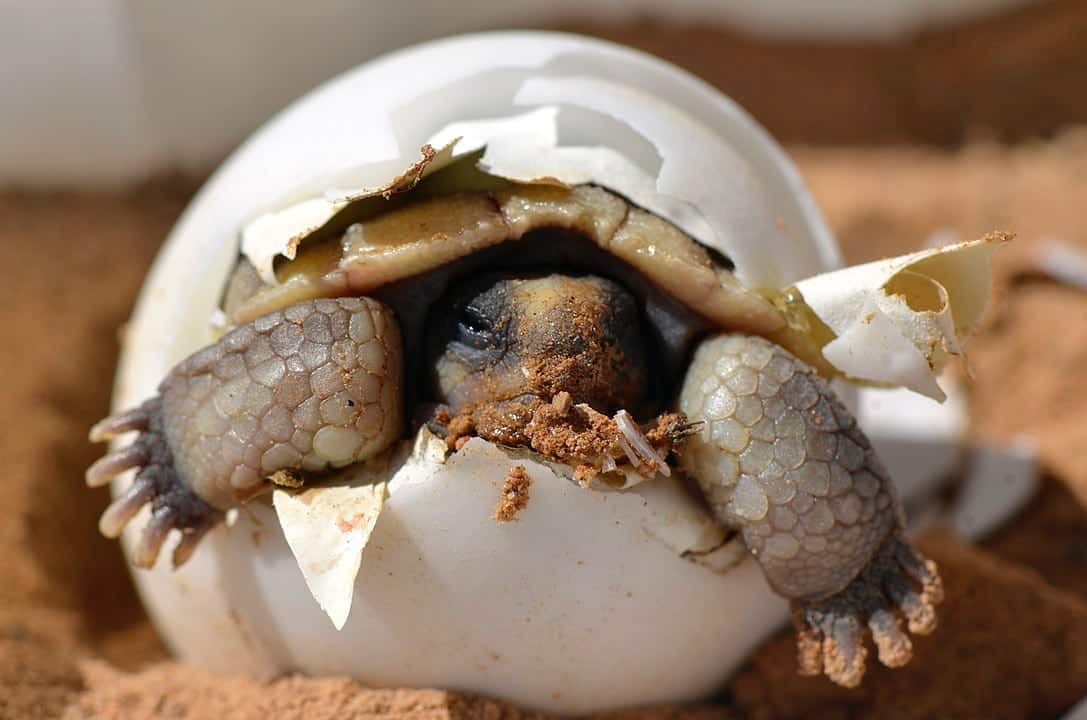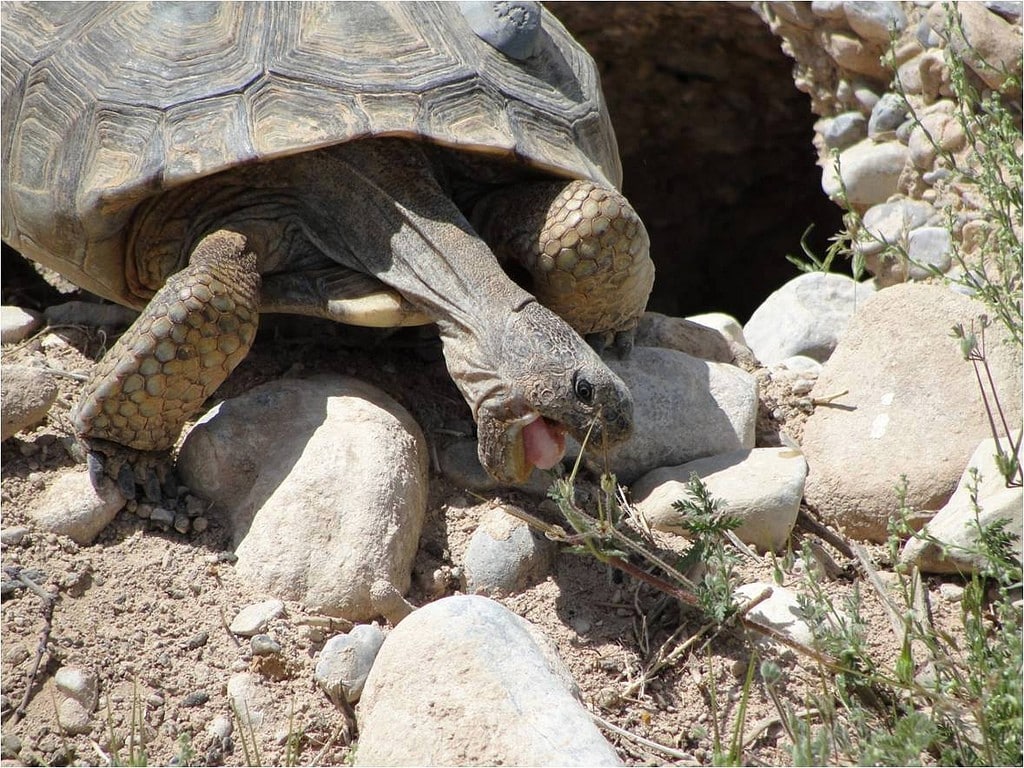The team made huge contributions to the head-starting of the desert tortoise.
Senior Research Scientist Tracey Tuberville, Senior Research Associate Kurt Buhlmann of the University of Georgia’s Savannah River Ecology Laboratory, and Brian Todd, an alumnus of the SREL, and current professor at the University of California, Davis, were selected by the Desert Tortoise Council as awardees of the Robert C. Stebbins Award.
The award is given out to those who conduct “exemplary research and contributions to the conservation of the desert tortoise.” The award recognizes those individuals or teams who contribute, via research, to the understanding of the desert tortoise species and the ecosystems where these reptiles can be found.

A hatchling desert tortoise. Photo by U.S. Geological Survey
“Under your direction, your students have developed and tested hypothesis, published their work in journals and presented papers at the Desert Tortoise Council Symposia, thereby making the findings available to a broad audience,” Ken McDonald, chair of the board of directors of DTC said in statement recognizing the team. “Without your leadership and efforts, the science of head-starting would not have reached the level it has achieved today.”
California Desert Tortoise Granted Temporary Endangered Species Status
Agassiz Desert Tortoise Head Start Program Launches
The team made huge contributions to the head-starting of the desert tortoise. This technique captive-breeds and raises species until they are large enough to fend for themselves in the wild. It essentially provides them with a head start that hatchlings don’t have in the wild. The Desert Tortoise Council also recognized the teams efforts in “developing methods to speed growth and development, identify important microhabitats and improve the species’ survival under various conditions once released into the wild.”


